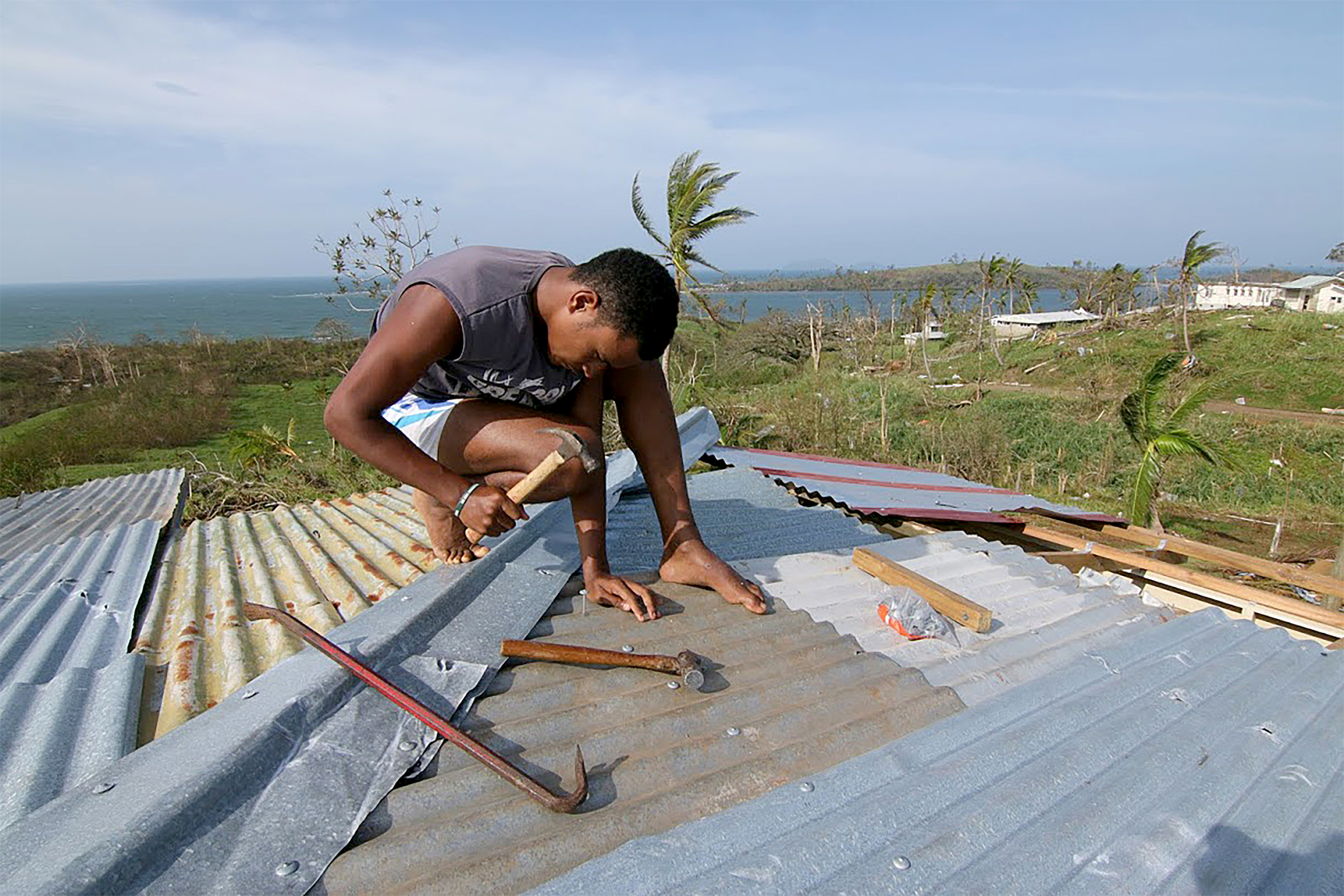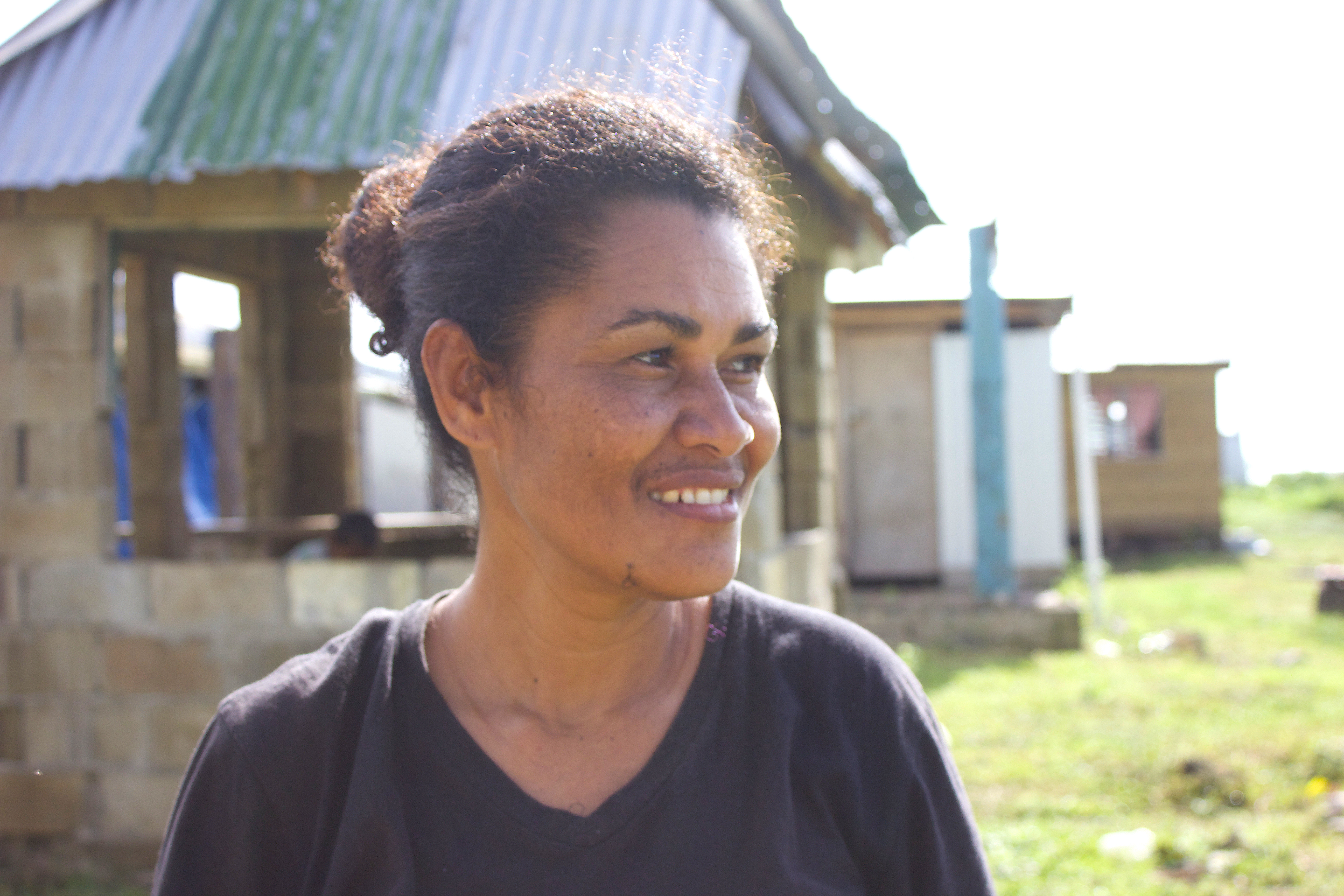

(Photo: Steven Saphore/AFP/Getty Images)
Nasau is now a village of “leftovers,” 48-year-old Lice tells me through the open window of her current house, a patchwork of wood and metal scavenged from the wreckage following Cyclone Winston, which swept across Fiji in 2016. Residents of Nasau, one of 14 villages on Fiji’s Koro Island, had been watching the sea level slowly rise along its shore for years when the cyclone’s storm surge flooded the village, leveling many of the homes closest to the shore. They all say that they believe climate change made the storm worse.
I walk through Nasau with Litia, a 25-year-old with her two-year-old son on her hip, and she calls out to each one of her neighbors as we pass their houses. “It’s been that way for years, decades, centuries; in Fijian culture we do that,” she says. “Even if they’re not there, we just call out their names.”
Click here for more on Fijians’ everyday climate struggles.
Across a small river that empties into the ocean, dividing the village in two, a woman named La Venia shows me where construction of her parents’ new house has already begun. Fiji’s government provided all the new materials they needed, but it will be some time before they can finish construction: La Venia tells me that most of the carpenters on the island are busy rebuilding Koro’s schools—all of which were flattened.
La Venia grew up in Nasau. Today, she’s visiting from Laotoka, a city on the main island of Viti Levu, where she now lives with her husband. He has a bag of fish slung over his back and a spear gun over his shoulder, which he drops on the ground before jumping into the river to cool off while his wife and I talk about how Winston re-shaped her village.

(Photo: Kate Wheeling/Pacific Standard)
We’ve seen a lot of changes here due to climate change. It was not like this before. When the sea level rises, the houses next to the beach on my parents’ [side], after Winston, some were demolished.
Here you can just look right down into the sea, but before I left, three years ago, it was all big mangrove trees. They used to grow there; Winston knocked them down.
It’s the human activities that are to blame, even here in Fiji—because their source of income is planting and cutting down trees, and that causes the landslides, and they’re burning up forests because they want to use it for planting. I think that that leads to the rise of sea levels. Also dumping their rubbish into the sea.

As La Venia talks, Litia nods in agreement. Many of the new houses are being rebuilt further inland from the coast, but if climate change continues unabated, that won’t make a difference. “Even five years ago, the sea didn’t come up this high. Now you can say, in two decades I think, the sea level will be right up to these houses,” Litia says, gesturing toward some of the newly constructed homes. “We cannot prevent climate change, but there are things we can do to help, things that reduce it, like plant more trees.”





